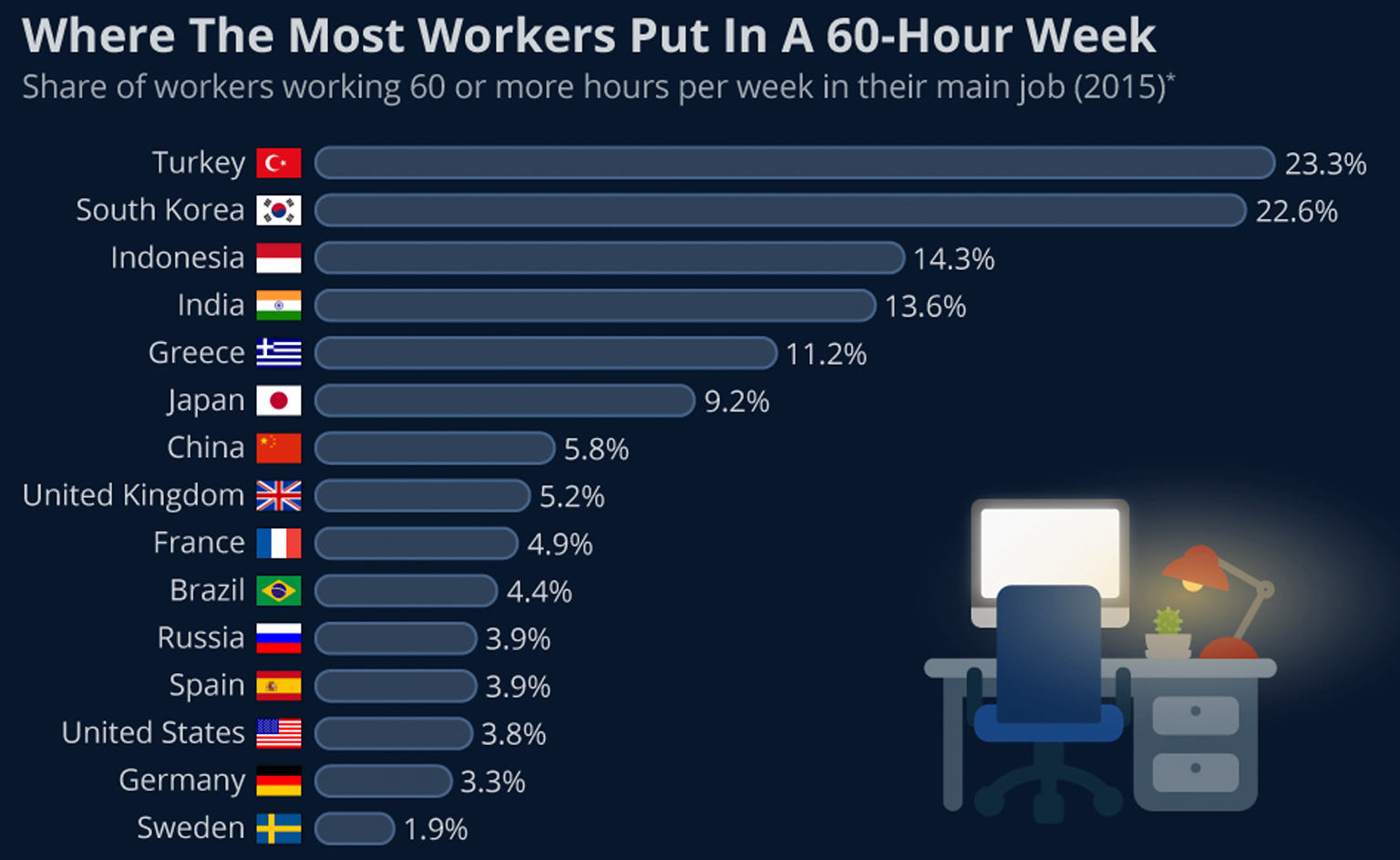During the next six months, thousands of employees in the U.K. will experience a four-day workweek pilot that our world has ever seen.
More than 3,300 people and 70 companies from industries spanning from health care to grocery stores will participate in this new plan—working just 32 hours a week— that is jointly conducted by by 4 Day Week Global, a not-for-profit community established to provide a platform for like-minded people who are interested in supporting the idea of the 4 day work week, and other think tank and researchers from the U.S. and U.K.
–World’s biggest pilot of four-day week begins | Video by BBC News
For those people who implement this proposal and employees who want work fewer hours, this idea is pretty straightforward—working time is just one factor that contributes to our work performance, but it is not the decisive one. To be honest, the employers care the most the outcome of a job. If the workers commit to maintaining the same productivity they would in the five-day workweek when they only need to work 80% of the time, then there will be nothing losing for the companies and still the employees can have an extra day off. This concept gains a lot of grounds since it makes the best of both worlds, and companies and employees each take what they need.
Actually, calls for working a 32 hours a week have intensified as many people around the world are still being bothered with the continuing Covid-19 pandemic and face burnout.
As this trial goes underway, productivity has become the focus that researchers care.
“We will analyze how people will respond to getting an extra day off, in terms of stress and burnout, job and life satisfaction, sleep, health, energy use, and many other aspects,” said in a statement by Julie Schor, professor of sociology at Boston College.
Moreover, as this plan picks up, Sronge, director of research at Autonomy and the co-author of Overtime: Why We Need A Shorter Working Week, mentioned that many people feel excited about this extra day off and they plan to use it to do some meaningful things. “It does make a difference,” Stronge finally put it. “And I think it would be a game changer.”
Of course, people are divided on this topic. Some workers argue this new working schedule will disturb their “normal life” since they may not adapt themselves to this new working shift. More importantly, they are concerned about the upcoming pressures that amount to their shorten working hours. For those people, they enjoy or we may put it they get used to allocating 40 hours a week to do their jobs, an ideal schedule for them since they will not feel too much pressured. Now accomplishing the same amount of work within 32 hours is a hurdle that they may not jump over, although this new plan aims to improve the workers’ productivity.

Also, just as mentioned earlier, the new trial is designed to cut employee’s working hours without sacrificing their working productivities, so there will be three days available for them to dispose. It would be ideal that they use those three days to boost the life qualities, such as spending time traveling, staying with their families, enjoying some hobbies and so on. I do believe this is the philosophy that the experts who crafted the plan and those who side with this hold.
For most of us, working is boring and sucks. News all come out criticizing that nowadays employees spend too much time on their jobs involuntarily. It is awful or even frustrating when we heard about the news that goes about some people working 60 to 70 hours a week at the expense of their health or family hours. We call those workaholic, and they may even get isolated by their friends. As we can understand, the idea that work and life are contradictory is deep rooted in our minds, at least to some degree. Things will go beyond our imagination and receive furious rebuttal if news resources release information about a boos encouraging young folks to work more hours. We scold that it is just the capitalist’s brain-washing tricks to cheat his or her employees into creating more surplus value for him or her.
It is not uncommon for most people that today our working culture has changed into one in which it goes above and beyond—working more hours either for making money or for better career prospects or simply because your boss requires it.
That does not suit to all. We have to take into account those people who really like what they do and those who are forced to work longer hours voluntarily—either because they have to support their families or they need money to study or buy stuffs. For those people, cutting working hours, if it is compulsory, does no good to them.
How far people will resonate with this alluring plan still needs some space to explore. It is encouraging that employees have news options to choose whatever way they feel comfortable for them. However, cautions need to be taken about how we treat the old ones, which should be open to anyone who believes reasonable to him or her if it do no harm to others.



